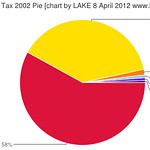
Here are videos of the entire
“first annual Valdosta-Lowndes Governmental Leadership Meeting”
that was held 6:30 PM 29 March 2012 in the Lowndes High School Lecture Hall.
Here’s
the announcement.
The meeting was introduced by
Dr. Steve Smith, Superintendent, Lowndes County Schools.
Lowndes County Schools had a written position statement,
with everything from a broad variety of test scores and other metrics
to specific examples of existing collaborations such as loaning busses
to the Valdosta School System for away sporting events.
 Dr. Smith
clarified that:
Dr. Smith
clarified that:
This is not a community forum, it is not an open dialogue.
He told me before the meeting started that he was concerned that if they
opened it up to questions from the audience it would take all night
and it had been hard enough to get the various elected officials to show
up at all without expecting them to stay for that.
I didn’t see but maybe a dozen non-elected audience members,
so I wonder whether that really would have happened,
but I applaud the various governments for collaborating at all.
He did say if you had a question you could
write it down and
hand it to a member of your elected government or school board.
He also indicated that committees might form, not that evening,
but perhaps growing out of that evening’s meeting.
He reiterated this meeting was for brainstorming among the elected officials.
The elected officials included
Valdosta Schools
Superintendent and
many VBOE members,
Lowndes School Superintendent and Superintendent-elect and many LCBOE
members,
Valdosta Mayor, City Manager, and many city council members,
and
Lowndes County Manager, Clerk, and voting commissioners,
but not the Chairman.
 Wes Taylor, Lowndes High School Principal & Lowndes County Schools Superintendent Elect
talked about finances.
Wes Taylor, Lowndes High School Principal & Lowndes County Schools Superintendent Elect
talked about finances.
 Valdosta Mayor John Gayle said
we’re regional now (regional hospital, regional university, etc.).
He talked about how Troup County went about landing the Kia plant,
which had to do with each governmental entity taking a role and collaborating.
(It had nothing to do with school consolidation.)
Valdosta Mayor John Gayle said
we’re regional now (regional hospital, regional university, etc.).
He talked about how Troup County went about landing the Kia plant,
which had to do with each governmental entity taking a role and collaborating.
(It had nothing to do with school consolidation.)
 VBOE member Vanassa Flucas said they try to put everything related
to their schools on their website, in an effort of transparency for
parents and students. Plus:
VBOE member Vanassa Flucas said they try to put everything related
to their schools on their website, in an effort of transparency for
parents and students. Plus:
We noticed that since we put our strategic plan on our website
approximately three years ago, it was very well received.
It was very heartening; people could find the information that they wanted.
Imagine that!
Continue reading →
 Don’t believe Latin American presidents (former and current) or a global commission including captains of industry or historic statesmen such as Jimmy Carter or major newspapers or Judge Napolitano or law enforcement professionals like Frank Serpico? Ask an economist who spells it out: the War on Drugs is an economic, public safety, and civil rights disaster, and legalization is needed right now.
Don’t believe Latin American presidents (former and current) or a global commission including captains of industry or historic statesmen such as Jimmy Carter or major newspapers or Judge Napolitano or law enforcement professionals like Frank Serpico? Ask an economist who spells it out: the War on Drugs is an economic, public safety, and civil rights disaster, and legalization is needed right now.and lots of people come together to advocate marijuana legalization (or just get high). Should drugs—especially marijuana—be legal? The answer is “yes.” Immediately. Without hesitation. Do not pass Go. Do not collect $200 seized in a civil asset forfeiture. The war on drugs has been a dismal failure. It’s high time to end prohibition. Even if you aren’t willing to go whole-hog and legalize all drugs, at the very least we should legalize marijuana.
















